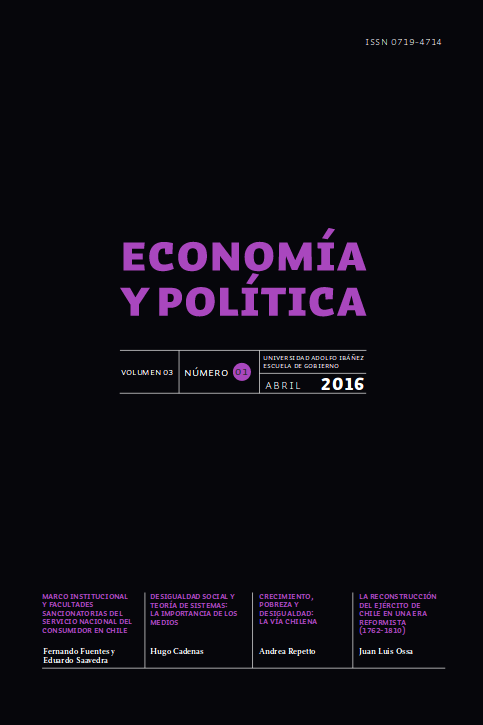Desigualdad social y teoría de sistemas: la importancia de los medios
DOI:
https://doi.org/10.15691/07194714.2016.002Palabras clave:
desigualdad social, teoría de sistemas sociales, medios de comunicación simbólicamente generalizados, inclusión/exclusión, diferenciación funcionalResumen
El artículo desarrolla un marco conceptual multidimensional para comprender la desigualdad en la sociedad moderna. Analiza tres contribuciones de la teoría de sistemas social y, particularmente, del sociólogo alemán Niklas Luhmann sobre este tema, éstas son: formas de diferenciación, inclusión/exclusión y clases sociales. Luego de analizar las compatibilidades y dificultades conceptuales de esos enfoques, el artículo sigue el camino de la teoría de los medios de comunicación simbólicamente generalizados desde la concepción original de Talcott Parsons hasta la reconstrucción de Niklas Luhmann. En esta línea, el texto plantea un enfoque de la desigualdad social sobre la base de la influencia como medio simbólico, el rol de este medio respecto de procesos de convertibilidad de otros medios, y las consecuencias de esos procesos en lo que denominamos sistemas sociales intermedios. Luego, por medio de la distinción de cuatro dimensiones analíticas: convertibilidad, control, influencia e inclusión/exclusión, el artículo ofrece un modelo taxonómico de desigualdades incluyentes o excluyentes. Concluimos con un llamado a la renovación de los enfoques existentes sobre la desigualdad social que considere nuevas propuestas que puedan hacer frente a las transformaciones sociales actuales.


